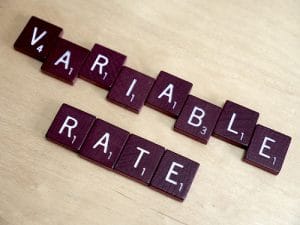
The eternal question – which mortgage is better?
It is one of the questions that is debated by almost every person looking to mortgage a property; to get a fixed rate vs. variable rate mortgage. Which one is better? It depends on who you ask, and your individual situation. However, that answer makes for a very short article. Therefore, I will give a little bit of background on the differences between the two types of mortgage rates, and some thoughts as to when it is best to go for one option or the other.
Fixed rate mortgages
Fixed rate mortgages can vary in term from 6 months to 10 years. The most popular chosen term is 5 years, as it is typically a lower rate than 7 or 10 year mortgage terms. Fixed rate mortgage rates are primarily dictated by the bond market. Mortgage companies essentially borrow the money at the “wholesale” rate that the bond market provides, adds a profit margin that will cover their expenses and ensure a profit, and then lend the money to mortgage borrowers.
Although a 5 year mortgage rate is the most popular, often a shorter term will have lower interest rates. However, as of the time of this writing (September 2014) Canadian government regulations dictate that any mortgage term less than 5 years has to be qualified at the Bank of Canada benchmark rate, which is substantially higher than the actual rate you get and it serves to make it more difficult to get a mortgage with a term shorter than 5 years.
One item of note with this mortgage type is how penalties are calculated. For fixed rate mortgages, the penalty is the GREATER of 3 months interest, or interest rate differential (IRD). This is noteworthy because, particularly with the chartered banks, these penalties can be substantial and punishing. It is also worth noting that each institution calculates their IRD somewhat differently, so it is very important to understand the exact terms and way of calculating the penalty. I would go so far as to say that this calculation is as important to be aware of as the interest rate that you get on your mortgage approval. For the .1% you may save on your mortgage, you could be paying a huge price if you ever have to sell your home.
Variable rate mortgages
Variable rate mortgages are the other type of interest rate in Canada, they are also commonly known as adjustable rate mortgages, which is the same concept but just slightly different. As indicated by their name, variable rate mortgage will potentially fluctuate in rate primarily depending on the economic policies of the Bank of Canada, who makes the decisions based on various economic factors whether to increase or decrease their lending rate. The funds for variable rate mortgages are sourced in the short term money market. The rate is set in contract as a rate in relation to the prime rate.
For example, on the contract it might say prime – 60. What this means is that to determine the rate of the mortgage, you take 0.6% off of the prime rate. The prime rate is currently 3%, so the effective rate would be 2.4%. It has been my observation that variable rates virtually always come out ahead of fixed rates. However, you have to be prepared for the possibility of fluctuations in the rate.
There are a couple of ways how the variance in interest rate is handled. For variable rate mortgages, the payment will stay the same, but the blend of principal and interest will be adjusted, which could speed up or slow down the rate at which you pay off your mortgage. For adjustable rate mortgages, the rate change will result in a change in the payment, but the pace at which the loan is being paid off (amortization) will remain the same.
Variable rate mortgages also allow you to convert into a term of equal or greater length to your remaining term without a penalty. Therefore, if you decide at a given time that there would be an advantage to taking a fixed rate term, you can switch at any time.
Another excellent feature of variable rate mortgages is that there is no IRD penalty. As a result, the calculation of your potential penalty is easy, and the penalty will be FAR more reasonable than on a fixed rate mortgage.
Fixed rate vs. variable rate mortgages – which should you choose?
There are many factors involved here, and it is really ultimately each person’s individual decision to decide. I will always tell my client my thoughts based on their individual circumstances, but as a mortgage broker, I am here just to help my clients make an informed decision. It also usually depends on the market at the given time that the decision was made. For example, after the 2008 economic meltdown in the US, variable rates were at prime + 1, which is not a great deal. Also, if you cannot qualify for a variable rate mortgage for the house you want, but you can with a 5 year fixed rate, then you need to take the fixed rate option. I would also say that if you are the person who would lose sleep over what might happen with your mortgage rate, then the fixed rate option is the right one for you.
However, if none of those factors are the case and there are no other substantial reasons against it, I would highly recommend people to take the variable rate mortgage. The interest rates usually work out far better than the fixed rate option, and the way that the penalty is calculated is far better. You also have the flexibility to lock into a fixed rate whenever you choose.
